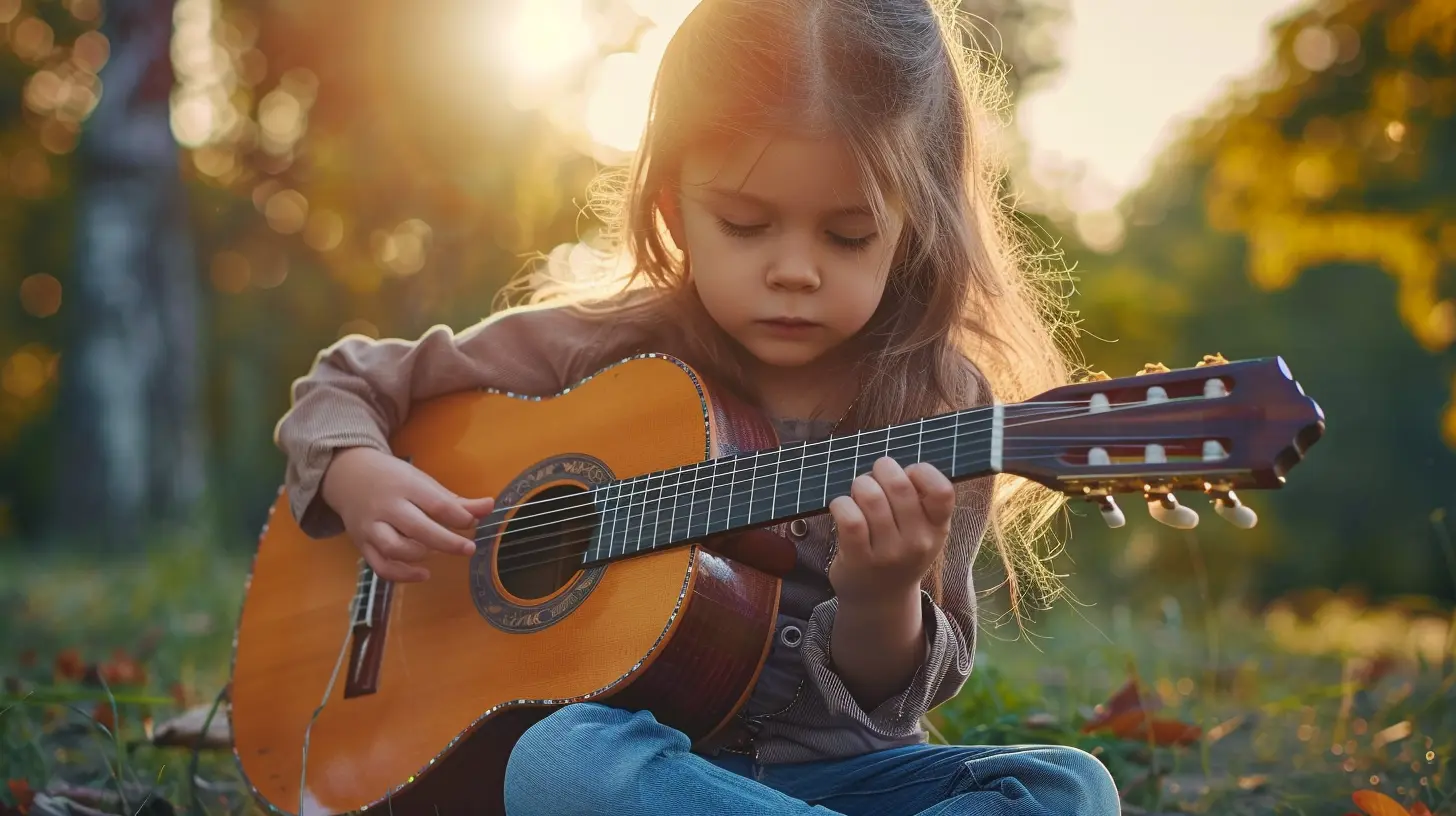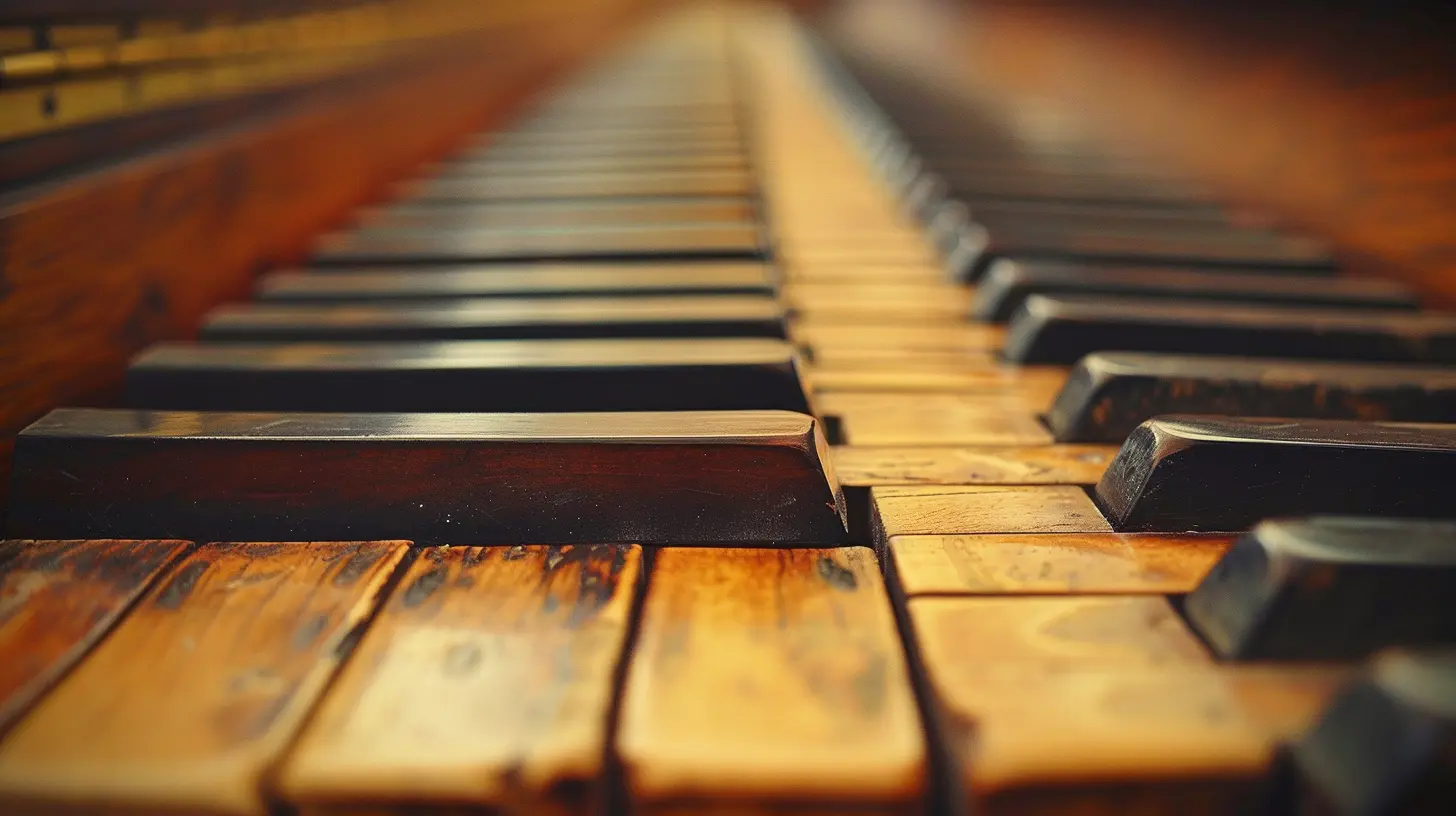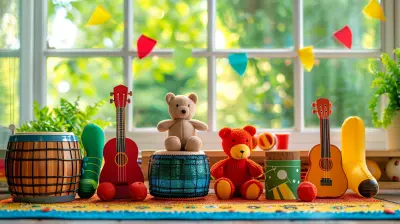Encouraging Musical Exploration in Early Childhood Education
6 August 2025
When we think about childhood, one of the first memories that often comes to mind is singing a nursery rhyme or banging on pots and pans in our mom’s kitchen, pretending they were drums. Music has a magical way of sticking with us, and for kids, it's more than just fun—it's fuel for development, creativity, and connection.
In this article, we’ll take a real, honest look at why encouraging musical exploration in early childhood education isn’t just a good idea—it’s a game-changer. Whether you’re a parent, teacher, or someone who just loves watching little ones grow, you’ll find that adding more music to a child’s life is simpler (and more impactful) than you may think.
What Is Musical Exploration, Really?
Let’s clear the air. Musical exploration isn’t about turning kids into little Mozarts overnight. It’s not about strict piano lessons or mastering the violin at preschool. Nope.Musical exploration is about letting kids engage with sound in a natural, playful way. It’s picking up a ukulele and strumming nonsense chords. It’s singing out loud without thinking of pitch. It’s clapping hands, stomping feet, shaking maracas, or humming made-up songs. It’s music, unplugged.
It’s not about talent—it’s about experience. And those experiences are golden.
Why Early Childhood Is the Perfect Time for Music
You know how kids seem to pick things up like little sponges? Whether it’s language, habits, or silly TikTok dances (yes, even toddlers now), early childhood is a critical learning window. The brain is incredibly active between birth and age 8. This is when connections form that influence everything from emotional intelligence to motor skills.Music taps into all of that.
It boosts memory, promotes language, enhances emotional regulation, and even strengthens spatial awareness (which, fun fact, is a key skill for math and engineering later on!). Plus, it builds confidence and social skills—you try keeping a straight face when a group of toddlers burst into a spontaneous dance party. It’s pure joy, and that joy teaches them how to connect with the world.
The Science-Backed Benefits of Music in Early Learning
We’re not just talking theories and feel-good vibes. Research backs this stuff up, big time. Let’s break it down:1. 🚀 Cognitive Development
Children exposed to music regularly show increased IQ levels, better memory retention, and improved attention spans. Music helps children make sense of patterns and sequences—skills they’ll need for math and reading.2. 🗣 Language Growth
Music and language go hand-in-hand. When kids sing songs or rhymes, they practice sounds, rhythm, and learning new words. Ever noticed how easily a child can remember a song lyric versus a line from a book? That’s music’s magic at work.3. 🧠 Motor Skills
Dancing, tapping, swaying, or even playing with simple instruments helps kids improve their fine and gross motor skills. Coordinating movement to rhythm boosts body awareness and physical confidence.4. 😄 Emotional and Social Learning
Music is a safe space for self-expression. Children feel free to explore emotions through sound. Singing together encourages cooperation, sharing, empathy, and patience. It’s teamwork disguised as fun.5. 🎶 Creativity and Imagination
Music opens the doors wide for imaginative play. A stick becomes a flute, a lunchbox becomes a drum, and suddenly you’re in a toddler-led concert world. That kind of thinking sets the stage for problem-solving and innovation later in life.
Making Music Accessible—No Fancy Instruments Required
You don’t need a full orchestra to introduce music to little ones. Start simple. You probably already have everything you need at home or in your classroom!Household Items Turned Instruments
- Plastic containers = Drums- Spoons = Rhythm sticks
- Rice in a bottle = Shakers
- Rubber bands on a box = Makeshift guitar
It's not about perfection—it’s about exploration. Let kids play and create without pressure.
Sing Everything (Even If You’re Off-Key)
Can’t carry a tune? Doesn’t matter. Kids don’t judge. Turn instructions into songs:🎶 “Time to put on your shoes, doo doo doo!”
It sticks better. It sounds friendlier. And it makes daily routines a little more musical and a whole lot more fun.
Music Activities for Early Childhood Classrooms
Let’s look at some easy, engaging ways educators can weave music into daily lessons.1. Morning Music Circle
Start the day with a song. A classic greeting like “Hello, Everyone” helps set a positive tone. Add movement—clapping, stomping, or simple hand gestures.2. Sound Exploration Stations
Set up a few stations with different sound-making tools—bells, drums, xylophones, or even cups filled with varying water levels. Let children move freely and experiment.3. Story Time with Sound Effects
Read a story and add sound effects. Ask kids to provide the “whoosh” of the wind, the “boom” of thunder, or “meow” of a cat. They’ll be giggling and engaged while boosting listening skills.4. Rhythm and Rhyme Games
Use call-and-response songs, clapping patterns, or rhyming games. These help with memory and pattern recognition—both essential skills for reading later on.5. Cultural Music Days
Introduce music from different parts of the world. Play international lullabies or dance tunes and have a mini dance party. It’s a fun way to celebrate diversity and build cultural awareness.Encouraging Musical Exploration at Home
Parents—this part’s for you. You don’t have to be a musician to make music part of your child’s day.Simple At-Home Musical Moments
- Bedtime lullabies: They’re soothing and help with emotional bonding.- Car ride karaoke: Turn on the radio and sing along.
- Dance breaks: Crank up the tunes for 10 minutes when everyone’s getting cranky. It's like pressing a reset button for moods.
The key? Don’t overthink it. Kids learn best when they’re having fun—and let’s be honest, dancing in your PJs is fun for everyone.
Overcoming Common Myths
Let’s bust a few myths that might be holding you back from going all-in with music.“I’m Not Musical, So I Can’t Teach Music.”
False. You don’t need formal training to encourage musical play. If you can hum, clap, tap, or play a song on your phone—you’re doing great already.“Music Should Be Taught by Professionals Only.”
Sure, music teachers are incredible. But everyday exposure is just as important. Think of it like language—you don’t wait until school to speak to your child, right? Music works the same way.“We Need Special Equipment.”
Nope. Your voice and a couple of pots and pans can take you further than you think.The Long-Term Impact of Early Musical Exposure
Here’s the inspiring part—what begins as playful music exploration often turns into a lifelong asset. Children who grow up around music tend to:- Develop stronger emotional intelligence
- Show resilience through self-expression
- Maintain better academic performance
- Feel more confident in social settings
That’s priceless.
Even if they don’t become musicians, the skills they learn—communication, creativity, focus—will help them thrive in whatever path they choose.
Tips to Keep Kids Engaged with Music
- Make it routine: A song before meals, one before bedtime.- Let them lead: Encourage them to create their own tunes or dance moves.
- Celebrate effort, not performance: Focus on joy, not accuracy.
- Be silly: The goofier you are, the more they’ll love it.
Wrapping It Up
Encouraging musical exploration in early childhood education is one of the simplest, most powerful gifts we can give kids. It’s not about raising the next pop star—it’s about nurturing well-rounded, emotionally intelligent, imaginative little humans.So, hum a tune, clap your hands, bang on a pot—and invite the little ones to join in. Music speaks to something deep in all of us, especially them. And the best part? You don’t need to be perfect. You just need to make a joyful noise.
Let’s fill their early years with rhythm, melody, and the freedom to explore sound.
Because when we give kids the chance to make music, we’re not just helping them grow—we’re giving them a soundtrack for life.
all images in this post were generated using AI tools
Category:
Music EducationAuthor:

Eva Barker
Discussion
rate this article
1 comments
Bradley Ellison
What a wonderful article! Encouraging musical exploration in early childhood not only fosters creativity but also enhances cognitive and social skills. So inspiring!
August 18, 2025 at 11:44 AM

Eva Barker
Thank you so much for your kind words! I'm glad you found the article inspiring and valuable for early childhood development.


